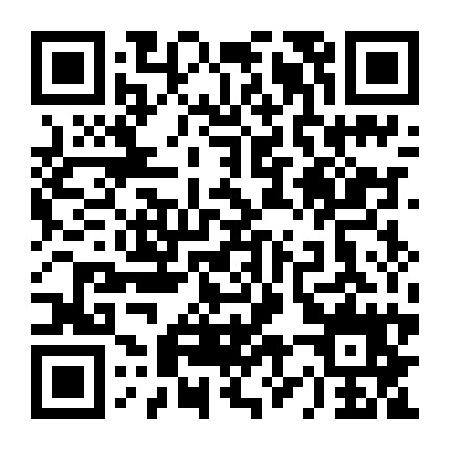Reading Comprehension (30%)
he victim cells.
B. The dopaminergic nerve cells can no longer co-ordinate movement.
C. There are tumors in the brain.
D. There are not enough dopaminergic neurons in the brain.
44. Janet Reno and Michael J. Fox are mentioned in the passage because .
A. they were experts on Parkinson’s disease
B. they made great efforts to fight Parkinson’s disease
C. they succeeded in fighting Parkinson’s disease
D. they were well-known sufferers of Parkinson’s disease
45. The primary purpose of this passage is to .
A. analyze what causes Parkinson’s disease
B. demonstrate how to prevent Parkinson’s disease
C. warn the young people of the danger of Parkinson’s disease
D. present new movements in the study of Parkinson’s disease
Passage Two
Yet these global trends hide starkly different national and regional stories. Vittorio Colao, the boss of Vodafone, which operates or partially owns networks in 31 countries, argues that the farther south you go, the more people use their phones, even past the equator: where life is less organized, people need a tool, for example to rejig appointments. “Culture influences the lifestyle, and the lifestyle influences the way we communicate,he says. “If you don’t leave your phone on in a meeting in Italy, you are likely to miss the next one. ”
Other mundane factors also affect how phones are used. For instance, in countries where many people have holiday homes they are more likely to give out a mobile number, which then becomes the default where they can be reached, thus undermining the use of fixed-line phones. Technologies are always “both constructive and constructed by historical, social, and culture contexts,” writes Mizuko Ito, an anthropologist at the University of California in Irvine, who has co-edited a book on Japan’s mobile-phone subculture.
Indeed, Japan is a good example of how such subcultures come about. In the 1990s Americans and Scandinavians were early adopters of mobile phones. But in the next decade Japan was widely seen as the model for the mobile future, given its early embrace of the mobile Internet. For some time Wired, a magazine for technology lovers, ran a column called “Japanese Schoolgirl Watch”,serving readers with a stream of mobile oddities. The implication was that what Japanese schoolgirls did one day, everyone else would do the next.
The country’s mobile boom was arguably encouraged by underlying social conditions. Most teenagers had long used pagers to keep in touch. In 1999 NTT, Japan’s dominant operator, launched i-mode, a platform for mobile-internet services. It allowed cheap e-mails between networks and the Japanese promptly signed up in droves for mobile internet. Ms Ito also points out that Japan is a crowded place with lots of rules. Harried teenagers, in particular, have few chances for private conversations and talking on the phone in public is frowned upon, if not outlawed. Hence the appeal of mobile data services.
The best way to grasp Japan’s mobile culture is to take a crowded commuter train. There are plenty of signs advising you not to use your phone. Every few minutes announcements are made to the same effect. If you do take a call, you risk more than disapproving gazes. Passengers may appeal to a guard who will quietly but firmly explain: dame desu? — it’s not allowed. Some studies suggest that talking on a mobile phone on a train is seen as worse than in a theatre. Instead, hushed passengers type away on their handsets or read mobile-phone novels (written Japanese allows more information to be displayed on a small screen than languages that use the Roman alphabet).
46. According to the passage, an Italian would leave his phone on in a meeting for which of the following reason?
A. He is afraid of missing a business opportunity.
B. His family members may call him in emergency.
C. He thinks it is rude to leave a call unanswered.
D. He needs to get posted about the latest change in the work schedule.
47. Which of the following statements is best supported by the passage?
A. How we use our phones reflect where we live.
B. Technologies determine the way we communicate.
C. Culture influences the development of technologies.
D. Social conditions dictate the mobile future.
48. The author suggests that Japan leads the world in the mobile-phone culture in that .
A. the Japanese are the earliest mobile phone users
B. the Japanese are the chattiest mobile phone users
C. the Japanese use mobile Internet early on
D. Japan provides the best mobile phone services
49. It can be inferred from the passage that the Japanese teenagers are fond of the mobile data services because •
A. they like to play electronic games
B. they like to talk to their friends on the phone
C. they can read novels on the phone
D. they can communicate with their friends more conveniently
50. Which of the following is the most appropriate title for the passage, based on its content?
A. The Japanese Phone Culture. B. Culture and Technology.
C. All Alike, All Different. D. Handy, If You Are Thrifty.
考博必备!历年真题及答案
考博精品好课,就选新东方!

 资料下载
资料下载
【必看】考博英语词汇10000例精解
发布时间:2020-09-02关注新东方在线服务号
回复【10000】免费获取
医学考博英语作文核心基础词汇整理
发布时间:2020-04-15关注新东方在线服务号
回复【医学考博】获取
医学考博英语阅读理解练习资料
发布时间:2020-04-15关注新东方在线服务号
回复【医学考博】获取
法学考博英语高频词汇word版
发布时间:2020-04-15关注新东方在线服务号
回复【医学考博】获取
医学博士英语统考真题及解析
发布时间:2019-12-26关注新东方在线服务号
回复【考博真题】获取
全国医学博士外语统一考试真题
发布时间:2019-12-26关注新东方在线服务号
回复【考博真题】获取
中科院考博英语复习备考实战经验分享
发布时间:2019-12-26关注新东方在线服务号
回复【考博经验】获取
中科院考博英语真题练习资料
发布时间:2019-12-26关注新东方在线服务号
回复【考博真题】获取

关注新东方在线服务号
关注新东方在线服务号,
免费获取考博必看干货资料

 推荐阅读
推荐阅读
沈阳工业大学2022年博士研究生招生考试英语真题B卷
来源 : 沈阳工业大学 2022-12-26 16:19:18 关键字 : 沈阳工业大学2022博士英语真题
沈阳工业大学2022年博士研究生招生考试英语真题A卷
来源 : 沈阳工业大学 2022-12-26 16:18:19 关键字 : 沈阳工业大学2022博士英语真题
沈阳工业大学2021年博士研究生招生考试英语真题B卷
来源 : 沈阳工业大学 2022-12-26 16:09:06 关键字 : 沈阳工业大学2021博士英语真题
沈阳工业大学2021年博士研究生招生考试英语真题试卷A卷
来源 : 沈阳工业大学 2022-12-26 16:07:31 关键字 : 沈阳工业大学2021博士英语真题
沈阳工业大学2020年博士研究生招生考试英语真题试卷
来源 : 沈阳工业大学 2022-12-26 16:04:42 关键字 : 沈阳工业大学2020年博士英语真题


 考博好课推荐
考博好课推荐
基础薄弱,备考迷茫,送纸质资料
价格 : ¥2280元
资深教师,教学简明,直接有效!
价格 : 0元
 资料下载
资料下载
关注新东方在线服务号
回复【10000】免费获取
关注新东方在线服务号
回复【医学考博】获取
关注新东方在线服务号
回复【医学考博】获取
关注新东方在线服务号
回复【医学考博】获取
关注新东方在线服务号
回复【考博真题】获取
关注新东方在线服务号
回复【考博真题】获取
关注新东方在线服务号
回复【考博经验】获取
关注新东方在线服务号
回复【考博真题】获取

 阅读排行榜
阅读排行榜
 相关内容
相关内容